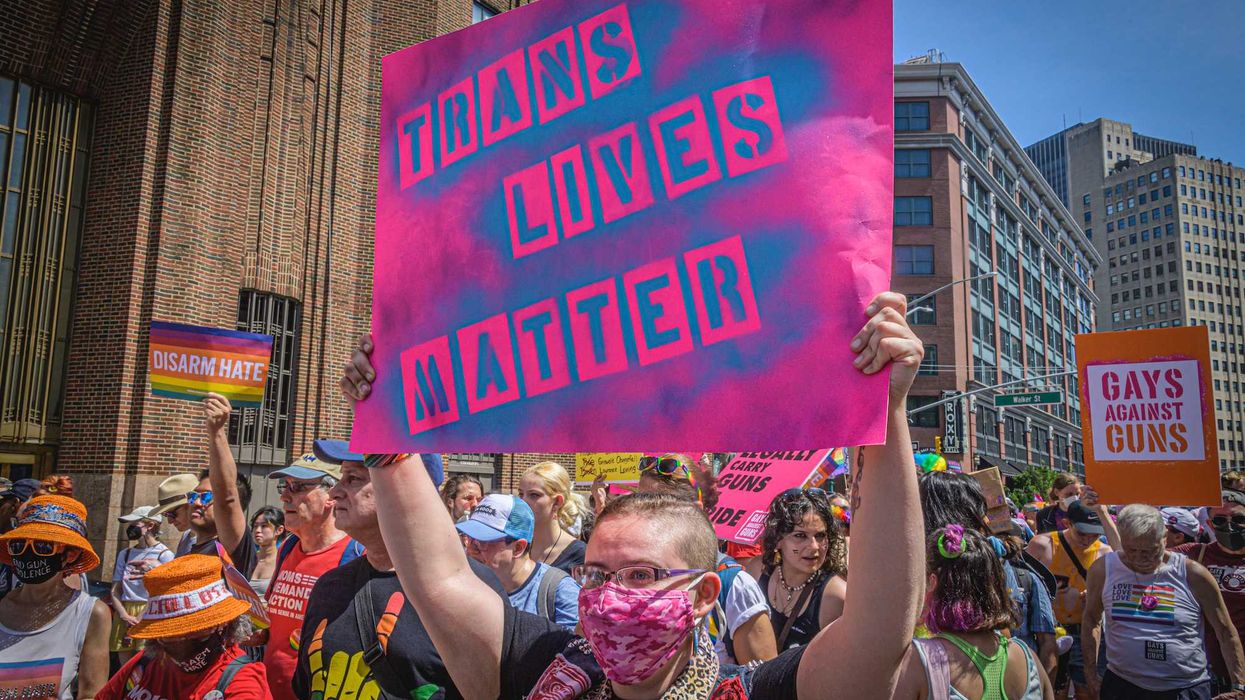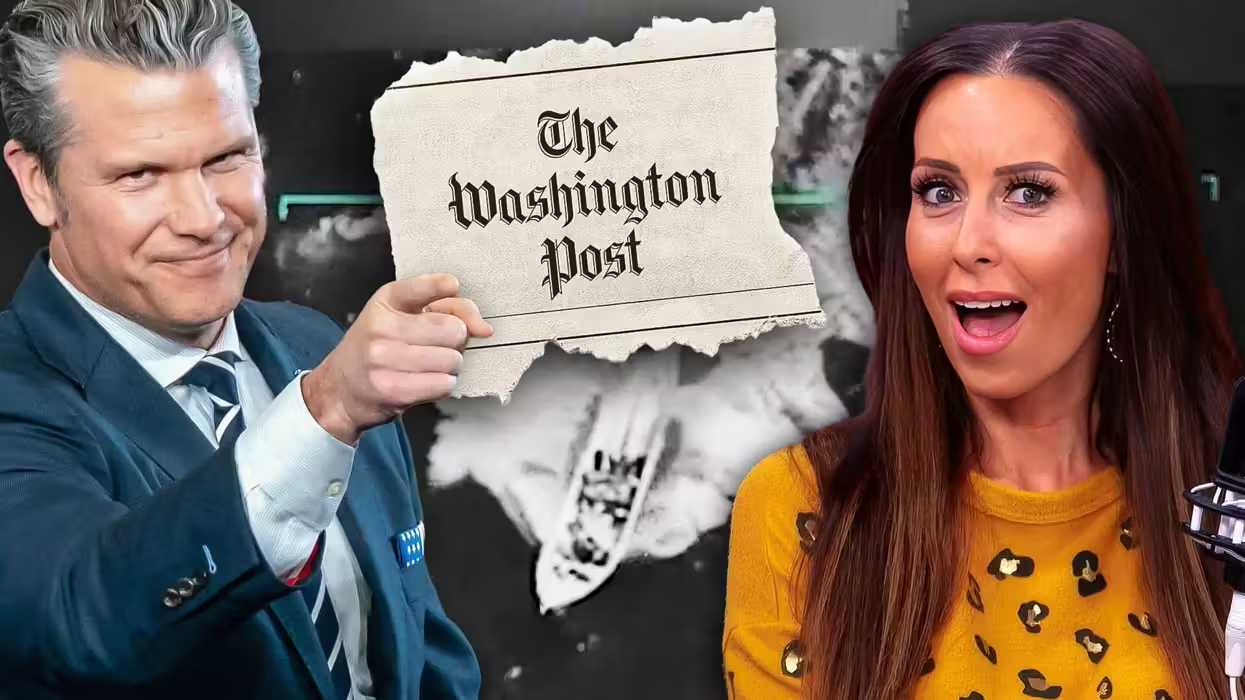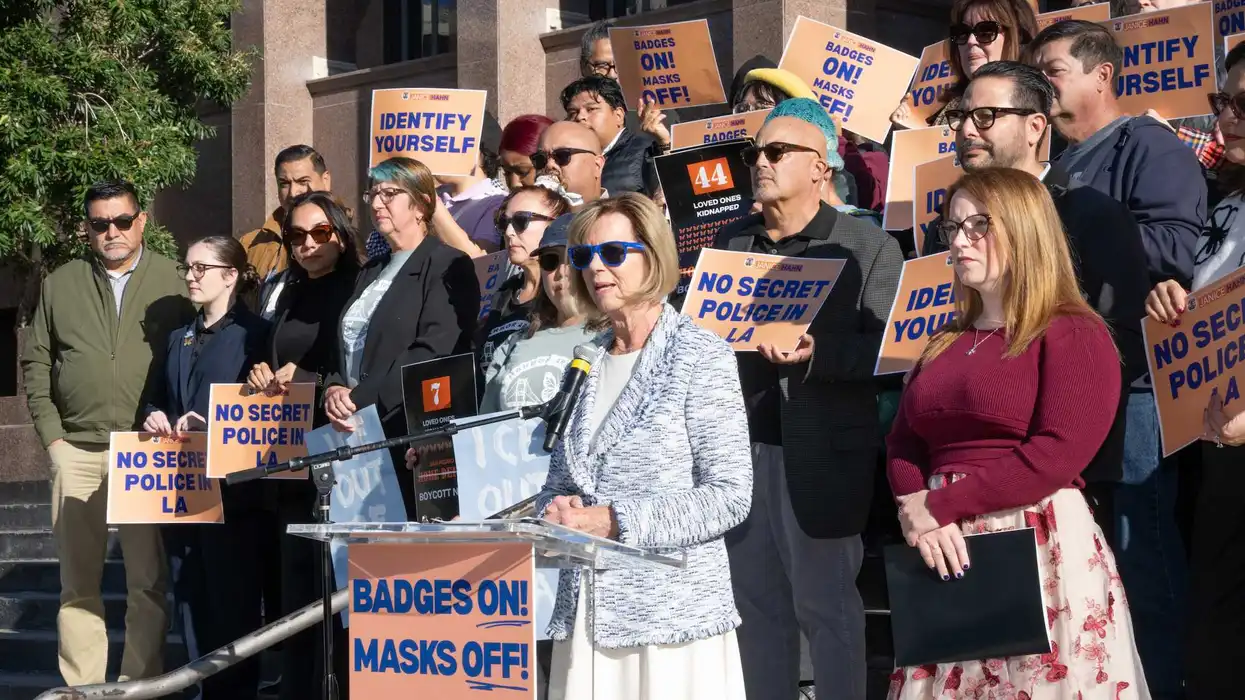
© 2025 Blaze Media LLC. All rights reserved.
Surprise Study: Majority of U.S. Public Distrusts Fed Gov't, Claims It's a Threat to Personal Freedom
February 01, 2013
A majority of the U.S. public believes that the government threatens their "personal rights and freedoms."
The American people are overwhelmingly frustrated by the federal government, with public trust in the institution near historic lows. To add to these troubling indicators, a new Pew Research Center study also finds that, for the first time, a majority of the U.S. public believes that the government threatens their "personal rights and freedoms."
This latter finding is, perhaps, the most shocking, as 53 percent of Americans answered affirmatively when asked whether Washington poses a threat to these sentiments; 43 percent responded "no," with an additional four percent claiming that they are unsure. When examining past trends, it is clear that there has been a great deal of growth in this arena.
Consider the Nov. 2001 proportions, in which only 30 percent answered "yes" to that same question and Aug. 2002, when only 32 percent did the same. Here's a chart showcasing trends surrounding threats to personal rights and freedoms from 1995 through 2013:
 Photo Credit: Pew Research Center
Photo Credit: Pew Research Center
Much of this change is partisan in nature. Take, for instance, the differences in trending data between Republicans and Democrats. Pew reports:
The growing view that the federal government threatens personal rights and freedoms has been led by conservative Republicans. Currently 76% of conservative Republicans say that the federal government threatens their personal rights and freedoms and 54% describe the government as a “major” threat. Three years ago, 62% of conservative Republicans said the government was a threat to their freedom; 47% said it was a major threat.By comparison, there has been little change in opinions among Democrats; 38% say the government poses a threat to personal rights and freedoms and just 16% view it as a major threat.
Trouble for the government doesn't end here, though. With the ongoing debate over the contraceptive mandate and the perception that federal authorities are unfairly cracking down on gun rights, among other issues, trust and faith in the institution has waned. Shockingly, only 26 percent of respondents believe that Washington will do the right thing "just about always or most of the time." On the flip side, the vast majority -- 73 percent -- say that the government can only be trusted sometimes or not at all.
See the fascinating demographic breakdowns, below:
 Photo Credit: Pew Research Center
Photo Credit: Pew Research Center
Historically, the rise in distrust of the government and the decline in reliance is noteworthy. A stunning graphic assembled by Pew shows just how pronounced these phenomenon are when looking at data from 1958 through 2013.
In 1958, the proportions were essentially flipped when compared to the most recent findings, with 73 percent expressing trust in the government and 23 percent expressing distrust. Interestingly, data for 2001 shows an anomaly from the general pattern -- a rise in trust and a decrease in skepticism. However, this can be explained when taking into account the impact that the Sept. 11 attacks had on the American populace.
Check out this shocking graphic, below (to experience the interactive nature of this graphic, complete with time-stamped events, click here):
 Photo Credit: Pew Research Center
Photo Credit: Pew Research Center
With a lack of trust also comes a dissatisfaction with government. Considering the aforementioned findings, it's no surprise that only 2-in-10 Americans are content with the federal government. Fifty-eight percent claim that they are frustrated, with 19 percent reporting anger. While discontent is certainly a reality, it should be noted that emotions about the government fluctuate depending upon political events and happenings.
Again, in Nov. 2001, just after the terror attacks, fewer people were angry and frustrated and more Americans counted themselves as "basically content." At the time, there was a sense of national unity -- the ideal that the U.S. was working collectively to move past the horrific tragedy.
 Photo Credit: Pew Research Center
Photo Credit: Pew Research Center
The survey was conducted from Jan. 9-15 and included 1,502 adults. Confidence levels vary for different groups that were included in the study (view this information here).
Want to leave a tip?
We answer to you. Help keep our content free of advertisers and big tech censorship by leaving a tip today.
Want to join the conversation?
Already a subscriber?
Billy Hallowell is a digital TV host and interviewer for Faithwire and CBN News and the co-host of CBN’s "Quick Start Podcast."
Billy Hallowell
Billy Hallowell is a digital TV host and interviewer for Faithwire and CBN News and the co-host of CBN’s "Quick Start Podcast."
more stories
Sign up for the Blaze newsletter
By signing up, you agree to our Privacy Policy and Terms of Use, and agree to receive content that may sometimes include advertisements. You may opt out at any time.
Related Content
© 2025 Blaze Media LLC. All rights reserved.
Get the stories that matter most delivered directly to your inbox.
By signing up, you agree to our Privacy Policy and Terms of Use, and agree to receive content that may sometimes include advertisements. You may opt out at any time.






